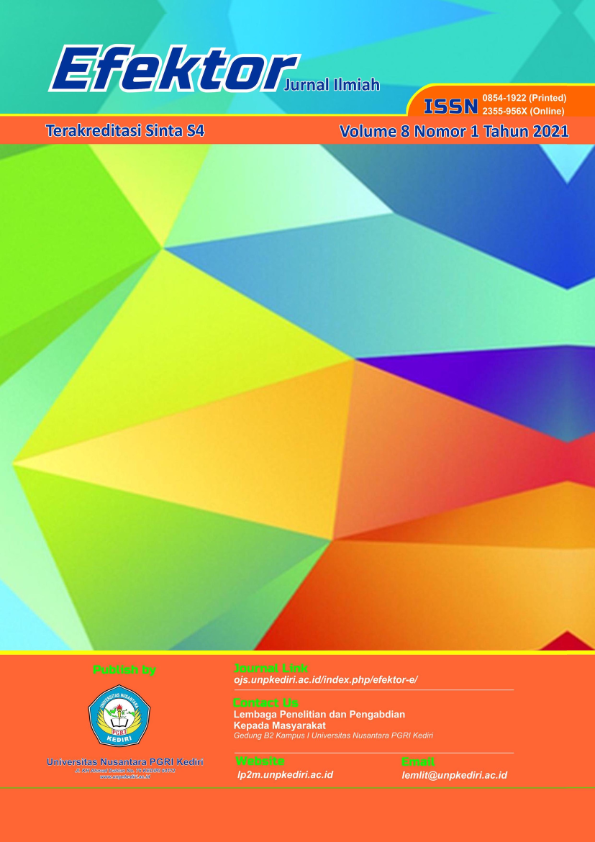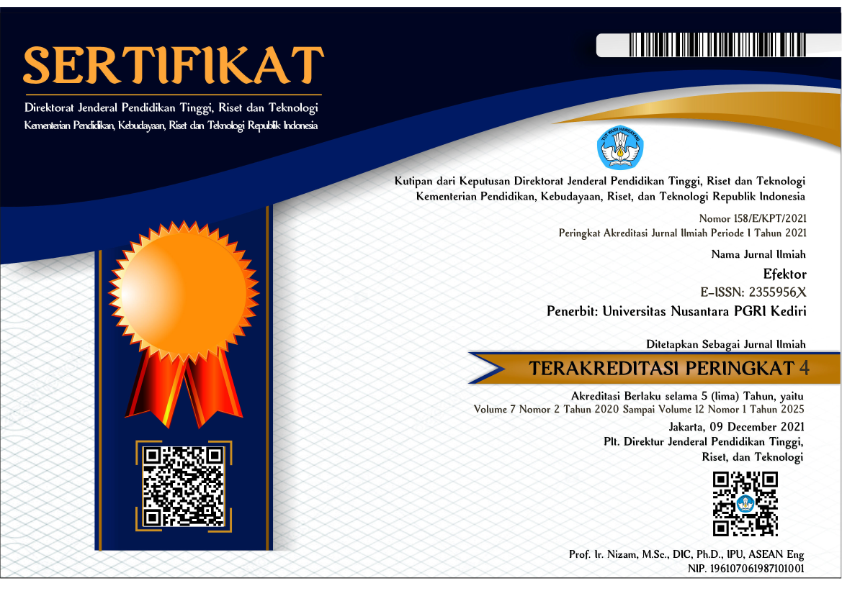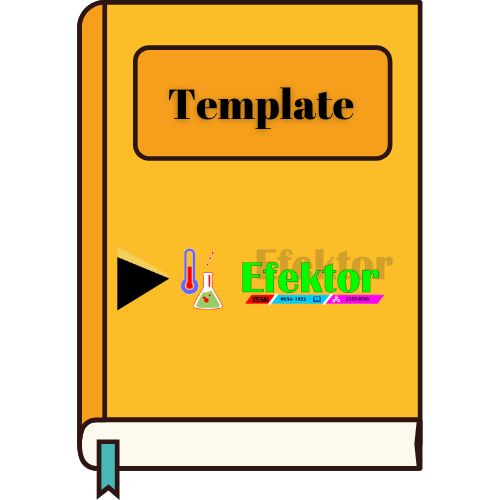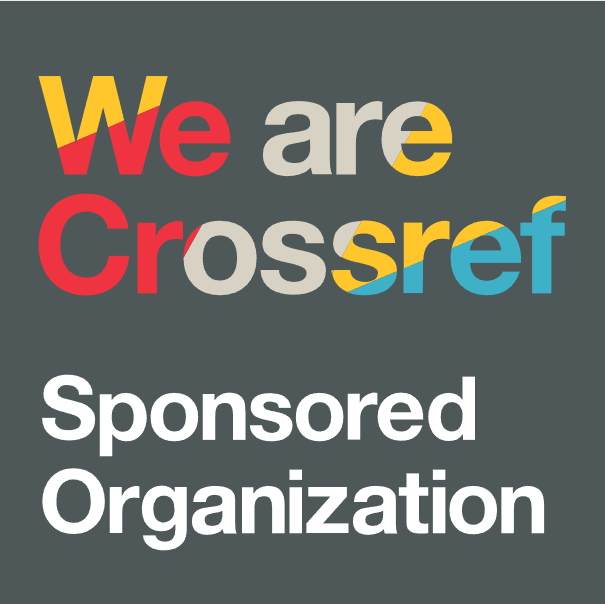Ragam Kohesi Leksikal Pada Rubrik Pembaca Menulis Koran Jawa Pos
DOI:
https://doi.org/10.29407/e.v8i1.15868Keywords:
text, lexical cohesion, repetition, synonym, antonymAbstract
This study emphasizes the usage description of (1) lexical cohesion in the form of repetitions in the Pembaca Menulis rubric of Jawa Pos newspapers, (2) lexical cohesion in the form of synonyms in the Pembaca Menulis rubric of Jawa Pos newspapers, and (3) lexical cohesion in the form of antonyms in the Pembaca Menulis rubric of Jawa Pos newspapers. Newspapers are source of written news that can be read at any time. In addition to presenting news that is happening around the community, newspapers are also place to express aspirations, one of which is the Pembaca Menulis rubric of Jawa Pos newspapers from May and June 2020 editions. A good and complete text requires cohesive sentences both grammatically and lexically. The data source of this research is the Jawa Pos newspapers from May and June 2020 editions which are taken randomly. This research is a qualitative research that uses a critical text analysis approach. The results of the study show that there are repetitions, synonyms, and antonyms in the May and June 2020 editions of Pembaca Menulis rubric of Jawa Pos Newspapers.
References
Abdi, R., Rizi, M. T., & Tavakoli, M. (2010). The cooperative principle in discourse communities and genres: A framework for the use of metadiscourse. Journal of Pragmatics, 42(6), 1669–1679. https://doi.org/10.1016/j.pragma.2009.11.001
Arikunto, S. (2013). Prosedur Penelitian: Suatu Pendekatan Praktik (XV). PT. Rineka Cipta.
Costa, C., Cardoso, A. P., Lima, M. P., Ferreira, M., & Abrantes, J. L. (2015). Pedagogical Interaction and Learning Performance as Determinants of Academic Achievement. Procedia - Social and Behavioral Sciences, 171, 874–881. https://doi.org/10.1016/j.sbspro.2015.01.203
Danglli, L., & Abazaj, G. (2014). Lexical cohesion, word choice and synonymy in academic writing. Mediterranean Journal of Social Sciences, 5(14), 628–632. https://doi.org/10.5901/mjss.2014.v5n14p628
Deyreh, E. (2012). Implication of Interactional Learning Practice in Classroom. Procedia - Social and Behavioral Sciences, 46, 2869–2871. https://doi.org/10.1016/j.sbspro.2012.05.579
Emzir. (2012). Metodologi Penelitian Kualitatif: Analisis Data (3rd ed.). PT. Raja Grafindo Persada. http://www.rajagrafindo.co.id
Evi, F., & Bakti, H. (2016). Analisis Wacana Kritis Pemberitaan Harian Suara Merdeka, Harian Republika, Harian Kompas, dan Tabloid Derap Guru dalam Pembentukan Citra Guru. Seloka: Jurnal Pendidikan Bahasa Dan Sastra Indonesia, 5(2), 136–147. http://journal.unnes.ac.id/sju/index.php/seloka
Fitriana, R. A. (2019). Analisis Wacana Kritis Berita Online Kasus Penipuan Travel Umrah (Model Teun a. Van Dijk). BASINDO : Jurnal Kajian Bahasa, Sastra Indonesia, Dan Pembelajarannya, 3(1), 44–54. https://doi.org/10.17977/um007v3i12019p044
Ghazali, A. S. (2010). Pembelajaran Keterampilan Berbahasa:dengan Pendekatan Komunikatif-Interaktif (A. N. Falah (ed.); I). PT Rafika Aditama. www.refika-aditma.com
Graham, P. (2018). Ethics in critical discourse analysis. Critical Discourse Studies, 15(2), 186–203. https://doi.org/10.1080/17405904.2017.1421243
He, Q. (2014). A Study of Lexical Cohesion Theory in Reading Comprehension. International Journal of English Linguistics, 4(6), 143–150. https://doi.org/10.5539/ijel.v4n6p143
Hua, Z., Seedhouse, P., Wei, L., & Cook, V. (2007). Language learning and teaching as social inter-action. In Z. Hua, P. Seedhouse, L. Wei, & V. Cook (Eds.), Language Learning and Teaching as Social Inter-action (10th ed.). Palgrave Macmillan. https://doi.org/10.1057/9780230591240
Musolff, A. (2012). The study of metaphor as part of critical discourse analysis. Critical Discourse Studies, 9(3), 301–310. https://doi.org/10.1080/17405904.2012.688300
Prohorets, E., & Plekhanova, M. (2015). Interaction Intensity Levels in Blended Learning Environment. Procedia - Social and Behavioral Sciences, 174(3822), 3818–3823. https://doi.org/10.1016/j.sbspro.2015.01.1119
Souto-Manning, M. (2014). Critical narrative analysis: The interplay of critical discourse and narrative analyses. International Journal of Qualitative Studies in Education, 27(2), 159–180. https://doi.org/10.1080/09518398.2012.737046
Zhang, X. (2017). Reading–writing integrated tasks, comprehensive corrective feedback, and EFL writing development. Language Teaching Research, 21(2), 217–240. https://doi.org/10.1177/1362168815623291
Downloads
Published
Issue
Section
License
Authors who publish with this journal agree to the following terms:
- Copyright on any article is retained by the author(s).
- The author grants the journal, the right of first publication with the work simultaneously licensed under a Creative Commons Attribution License that allows others to share the work with an acknowledgment of the work’s authorship and initial publication in this journal.
- Authors are able to enter into separate, additional contractual arrangements for the non-exclusive distribution of the journal’s published version of the work (e.g., post it to an institutional repository or publish it in a book), with an acknowledgment of its initial publication in this journal.
- Authors are permitted and encouraged to post their work online (e.g., in institutional repositories or on their website) prior to and during the submission process, as it can lead to productive exchanges, as well as earlier and greater citation of published work.
- The article and any associated published material is distributed under the Creative Commons Attribution-ShareAlike 4.0 International License













